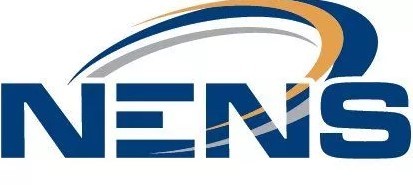Lowell Managed IT Services Provider Explained The Best Practice of SaaS Security
Lowell, United States - August 4, 2023 / New England Network Solutions - Lowell Managed IT Services /
SaaS Security Best Practices Explained by Managed Services in Lowell
In today’s digital landscape, ensuring the security of Software as a Service (SaaS) applications is crucial for organizations.
With cyber threats and data breaches on the rise, implementing robust SaaS security best practices is paramount.
This blog post explores the essential measures that organizations should adopt to secure their SaaS applications, protect sensitive customer data, and maintain compliance with security standards.
Understanding Security for SaaS Applications
To enhance the security of your digital ecosystem, it’s essential to understand the unique complexities of SaaS cybersecurity.
Protecting SaaS applications requires confronting a multitude of threats, unauthorized access, data leaks, and violations of compliance rules.
By building robust safeguards against data security threats, corporations can construct a protective layer around their SaaS applications, guarding against potential risks, and guaranteeing the confidentiality, integrity, and accessibility of customer data.
3 Important SaaS Security Standards You Should Be Aware Of
1. Implement Robust User Access Controls
When talking about SaaS (Software as a Service) security, one of the most integral elements is effective user access control. This is central to fortifying your SaaS application security.
A best practice in this area is to leverage role-based access controls (RBAC), a method that assigns permissions based on user roles and responsibilities.
- This system allows for granular control over who can access what, providing an extra layer of protection for sensitive information.
However, it’s important to keep in mind that RBAC isn’t a set-and-forget solution – regular reviews and updates of user access privileges are essential to prevent unauthorized access.
- This continuous process helps organizations stay ahead of potential threats by minimizing the risk of unauthorized access, effectively reducing the attack surface.
By implementing these granular access controls, organizations not only boost their application’s security but also ensure the protection of sensitive customer data.
2. Utilize Data Encryption for Enhanced Protection
A cardinal aspect of SaaS security is data encryption, a tool indispensable for the safeguarding of data.
- It’s crucial to ensure data encryption both when data is at rest and in transit. To achieve this, the use of professional encryption algorithms is highly recommended.
- Implementing end-to-end encryption is another critical step that ensures your data is locked away from prying eyes from the moment it leaves the sender until it reaches the recipient.
In addition to this, the utilization of secure protocols like SSL/TLS further bolsters data protection during transmission. Such strong data encryption mechanisms offer a formidable defense against unauthorized access.
So even in the unfortunate event of a security breach, these measures ensure your sensitive information remains inaccessible to malicious actors, thereby underscoring the importance of robust encryption in your SaaS security toolkit.
3. Prioritize Cloud Security and Compliance
Since Software as a Service (SaaS) applications function within the cloud, their security is invariably tied to the security of the cloud environment. Therefore, alongside securing the applications, it’s essential for organizations to devote equal attention to cloud security best practices.
A key starting point is selecting a reputable cloud service provider that adheres to stringent security standards and holds relevant certifications. This not only ensures a solid foundation for your SaaS applications but also boosts your stakeholders’ confidence.
- Regular assessments of your cloud environment’s security posture should also form a crucial part of your security regimen.
- This proactive approach enables you to identify potential vulnerabilities and address them before they can be exploited.
Moreover, employing appropriate security measures like intrusion detection systems and advanced security monitoring further fortifies your cloud environment. These steps collectively help you create a resilient security framework for your SaaS applications in the cloud.
SaaS Best Practices for Securing Applications
A recent Deloitte study revealed four main data security conundrums plaguing businesses today: the security and privacy of data, integration issues, IT processes, and service termination.

Adopting SaaS best practices is crucial for establishing a robust framework that prioritizes SaaS application security and enhances the protection of customer data. As recommended by managed IT services providers in Lowell, there are three key best practices that you should consider adopting:
1. Automate SaaS Security Processes
Automating security procedures adds muscle to SaaS application security. Harness the power of automation tools for tasks like vulnerability scanning, log analysis, and security incident response.
By automating these tasks, you can swiftly spot and respond to security threats, making your response more efficient and slashing the risk of unauthorized access and data breaches.
2. Educate and Train
Continuous education and training for your workforce are paramount in guaranteeing effective SaaS security. This holds true for businesses in all sectors.
It is imperative that all personnel receive regular training in security awareness. Moreover, your security teams, specifically, should be well-versed in the most recent SaaS security best practices, emerging threats, and industry standards. By staying informed, they can effectively protect your organization's SaaS applications.
To ensure your workforce remains up to date with the latest security trends, it is recommended to host regular training sessions and provide relevant resources. These efforts contribute to enhancing the knowledge and skills of your security teams and staff.
By investing in comprehensive training programs, your security teams and employees will be equipped to recognize and mitigate security risks associated with SaaS applications. A managed services provider in Lowell can assist you in designing and delivering tailored training that aligns with your business requirements and SaaS security objectives.
Secure Your SaaS Applications: Expert Insights on Best Practices from NENS, a Leading Lowell Managed Services Provider
ticking to SaaS security best practices is essential for businesses to protect customer data, maintain regulatory compliance, and foster trust and customer satisfaction. Implementing robust user access controls, deploying data encryption, prioritizing cloud security, automating security processes, and investing in education and training are key components of constructing a resilient security framework for SaaS applications.
For businesses in need of assistance with securing their SaaS applications, they can turn to NENS, reputable Lowell managed services. NENS offers SaaS cybersecurity support, providing valuable advice and guidance to ensure enterprises remain in compliance with SaaS security standards.
To learn more about NENS' approach to SaaS application security solutions, interested parties are encouraged to get in touch. NENS is pleased to arrange a complimentary consultation, offering an opportunity to explore how their expertise can assist in achieving optimal SaaS security for businesses.

Contact Information:
New England Network Solutions - Lowell Managed IT Services
11 Kearney Square
Lowell, MA 01852
United States
Michael Kourkoulakos
(855) 918-2126
https://www.nens.com/
Original Source: https://www.nens.com/saas-security-best-practices/

